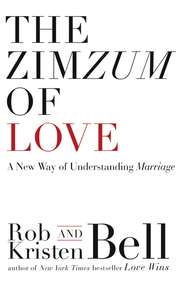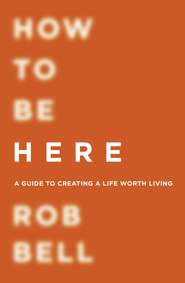По всем вопросам обращайтесь на: info@litportal.ru
(©) 2003-2024.
✖
Jesus Wants to Save Christians: A Manifesto for the Church in Exile
Автор
Год написания книги
2018
Настройки чтения
Размер шрифта
Высота строк
Поля
Which would make a nice ending to the story.
But it’s not the end. It’s actually a beginning. Their journey takes them to the foot of a mountain—a mountain called Sinai.
And what happens at Sinai is revolutionary,
not just for these former slaves,
and not just for the story of the Bible,
but for all of humanity.
Sinai
It’s here, at Sinai, that God speaks.
God hasn’t talked to a group of people since Eden. Things have been quiet, an eerie sort of silence. There have been exchanges with individuals—such as Abraham and Noah—but not with the masses.12 (#litres_trial_promo)
So when Moses tells the people at Sinai to “prepare yourselves” and then leads them out of the camp “to meet with God,”13 (#litres_trial_promo) this is about way more than a group of wilderness wanderers gathering for a message from the heavens. This is about humanity estranged from its maker. This is about the primal distance that exists between the divine and the human, the gap deep in the soul of humanity. Sinai is an answer to God’s question to Adam, “Where are you?” This moment at Sinai is about the reversal of the consequences of Eden.
Sinai is the breaking of the silence.
God is near.
God is about to speak.
It’s believed that this is the only faith tradition in human history that has as its central event a god speaking to a group of people all at one time.14 (#litres_trial_promo)
It has simply never happened in the history of the world.
And it happens in the wilderness, which has global implications. Because the Sinai event happened in the wilderness and not in the midst of a nation or city or province where someone could make ownership claims, it was for all the people of the world.15 (#litres_trial_promo)
Before God speaks directly to the people, God tells Moses to remind them of the exodus. “You yourselves have seen what I did to Egypt, and how I carried you on eagles’ wings and brought you to myself.”16 (#litres_trial_promo)
It’s all grace.
It’s all a gift.
Rescue, redemption, liberation—it’s all received from God.
“Now if you obey me fully and keep my covenant . . .”17 (#litres_trial_promo)
The word covenant is the Hebrew word berit. It’s where we get the word testament, as in Old or New Testament. Berit carries the idea “to cut a deal.”18 (#litres_trial_promo) It comes from an ancient Near Eastern practice relating to business, legal, and marriage agreements. God invites the people to make a covenant—a marriage of sorts. The divine and the human, coming together in a sacred wedding ceremony.
God continues, “Although the whole earth is mine, you will be for me a kingdom of priests and a holy nation.”19 (#litres_trial_promo)
Priests?
A priest mediates the divine. To mediate is to come between. A priest comes between people and a god or gods. A priest shows you what his or her god is like.
When you go to a temple or shrine and you see the priest there—what they do, what they say about it, the rituals they perform—you get a sense for what their god cares about, who their god cares about.
So when God invites the people to be priests, it’s an invitation to show the world who this God is and what this God is like.
Now there were hints of this invitation earlier, before they left Egypt. In Exodus 7, Moses was going to confront Pharaoh and command that he let the people go. The text reads, “Then the LORD said to Moses, ‘See, I have made you like God to Pharaoh.’ ”20 (#litres_trial_promo)
Like God?
God is telling Moses that Pharaoh will see him as God, or at least “like God”?
And this is not Moses’s idea; it’s God’s idea. What’s going on here?
The answer leads us to a universal truth: God needs a body. God needs flesh and blood. God needs bones and skin so that Pharaoh will know just who this God is he’s dealing with and how this God acts in the world. And not just so Pharaoh will know but so that all of humanity will know.
This is the God who liberates from oppression.
But God doesn’t just invite them to be priests; he invites them to be a “holy nation.”21 (#litres_trial_promo) The word nation takes us back to Genesis. Genesis is about the progression of sin, violence, and death—what started with one son killing the other quickly led to an entire civilization in opposition to God. And then Exodus begins with the Israelites22 (#litres_trial_promo) enslaved by a nation. Sin always gains a head of steam when it goes unchecked. And that always leads to institutions and cultures and structures that are anti-kingdom. This leads to dehumanizing places, like Egypt had become, which these former slaves standing at the base of Sinai know all too well. And God’s response is to form a different kind of nation, a “holy” one shaped not by greed, violence, and abusive power but by compassion, justice, and care for one’s neighbor.
It’s as if God says, “You’ve experienced Egypt; now I’m calling you to be the anti-Egypt.” Up until now, God has been speaking to the people through Moses. But a point comes when God speaks directly to the people, beginning with the words, “I am the LORD your God, who brought you out of Egypt, out of the land of slavery.”23 (#litres_trial_promo)
Of course.
The only way to understand this covenant relationship between God and the people is to understand what they’ve already been through together. Their relationship is rooted in an act of deliverance that God has performed on their behalf.
This is not an abstract God who floats above the blood and dirt and pain of the world. This is a God who is fundamentally defined by action on behalf of the oppressed.24 (#litres_trial_promo)
“I am the LORD . . . who brought you out.”
And then it’s here, at Sinai, with the reminder of their liberation floating in the air, that God gives them the Ten Commandments.
Many people are familiar with the Ten Commandments, which are often portrayed as strict rules given by a fire-breathing God to keep people in line. But when they’re seen in their original context, the commandments take on all sorts of new meanings.
Remember, these people have been living, up until very recently, as slaves. Slavery is a fundamentally inhumane condition. Being owned and treated as property robs people of the dignity and honor of being a human. This has deeply affected how these Israelites see themselves and the world around them. What God begins here at Sinai with the Ten Commandments is the long process of teaching them how to be human again. These commands are vital truths about what it means to live in authentic human community.
The first commandment instructs the people to “have no other gods.”25 (#litres_trial_promo) Their humanity is directly connected to their ability to remember their liberation, which was a gift from God. If they forget God—the one, true God who freed them—they are at that very same moment forgetting their story. If they forget their story, they might forget what it was like to be slaves, and they might find themselves back in a new sort of slavery.
The second commandment builds on the first, prohibiting any “image in the form of anything.”26 (#litres_trial_promo) In the ancient Near East, people conceptualized their many gods using images. They made statues and carvings and idols as physical representations of the divine beings they believed controlled their fate. A statue or carving gives shape and size and depth to the divine. An idol helped people understand just who their god was and what their god was like.
But this exodus God is different. This God is inviting these people to be priests, to show the world what this God is like through their lives. This God doesn’t need images in the form of wood or stone or marble, because this God has people.
This God is looking for a body.
The command about idols and images leads to the third commandment, the prohibition not to “misuse the name of the LORD your God.”27 (#litres_trial_promo) The Hebrew word for “misuse” here can also be translated “carry.”28 (#litres_trial_promo) God has redeemed these former slaves and is now inviting them to be representatives in the world of this redemption and the God who made it happen. They are how the world will know who this God is. God’s reputation is going to depend on them and how they “carry” God’s name. The command is certainly about the words a person speaks. But at its heart it is far more about how Israel carries itself as those who carry the name of God. Will it act on behalf of the poor and oppressed? Because that is how this God acts.
The fourth commandment is to take a Sabbath, a day each week, and not do any work.29 (#litres_trial_promo) In Egypt, they worked every day without a break, being treated as objects to be exploited, not people.30 (#litres_trial_promo) The Sabbath is the command to take a day a week to remind themselves that they aren’t in Egypt anymore, that their value doesn’t come from how many bricks they produce. Their significance comes from the God who rescued them, the God who loves them.
The Ten Commandments are a new way to be human, a new way to live and move in the world, in covenant with the God who hears the cry of the oppressed and liberates them.
Everything about the rest of the commandments speaks to this newfound liberation. God is inviting, God is looking, God is searching for a body, a group of people to be the body of God in the world.











